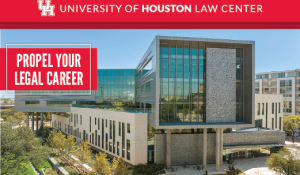Second piece of advice: What the New York Times, a good TOEFL score and John Grisham all have in common - They will help you do better during your LL.M/JD
By Johana in Advice for foreign lawyers coming to the U.S. to get graduate degrees (both LL.M & JD) on May 19, 2008
Let’s face it. One of the biggest hurdles non-native English speakers encounter during their LL.M/JD programs is breaching the language barrier. And by breaching it I don’t mean being able to converse with others in the subway or getting through the latest edition of Time Magazine.What I mean is being able to participate in class when called upon by professors and, more importantly, being able to complete extensive and complex reading assignments which are hard to get through even for native speakers.
It is not uncommon for some incoming students to focus on getting high TOEFL scores to get into the programs of their choice, and then forgetting about their English skills altogether until they get to the U.S. to start their programs. Others expect that because they are fluent, they do not need to think about their English proficiency until they go to their first class. I beg to differ.
Don’t get me wrong, a good TOEFL score is an important tool and a good check on what your proficiency level is. However, there is more to it than what the score alone reveals.
Throughout the course of your program, you will encounter plenty of situations where your comfort level with English will highly impact your performance. To give you an idea, most classes require out-of-class preparation which, as mentioned, often involves extensive reading assignments. (It is estimated that for every hour of class 3 to 4 hours of out-of-class study are required for native speakers). These classes are structured around the idea that students will cover the assigned reading material in advance of the in-person session, during which the professor will succinctly cover the reading (by asking students to summarize it verbally) and will touch upon the most important issues that need to be taken away for that particular topic. By engaging in Socratic conversation, students are encouraged to think about the issues for themselves, develop what I call a “legal radar” to spot legal issues, and think of plausible arguments for all parties involved.
As you can imagine, being able to understand the concepts covered in the reading and articulate them in a way that makes sense to your professor is critical for your success during the program. This will be particularly important during your final examinations which, in certain schools, can account for 100% of your grade. (Note that as stressful as in-class participation (also known as “cold-calling”) can be, it is often ungraded; so even if you struggle a bit during the verbal presentation of the facts of a case and muddle up the issues, nothing will suffer, except perhaps, your ego... So no need to worry too much about this, as you will soon discover that many of your classmates will be in a very similar situation).
Your English proficiency will also be critical during the job hunt process. Unless you are able to effectively communicate with potential employers during the interviewing process, your prospects of getting a position in the U.S. may suddenly look quite slim.
So my advice to you is, don’t underestimate the importance of your English skills. Don’t wait until you arrive at the airport to start thinking, reading and speaking in English. In advance of your program, try picking up some legal reading (articles, law reviews, etc.) a John Grisham novel (other legal thrillers will also do and will keep your preparation interesting) and/or a copy of the New York Times or the Wall Street Journal. Also, try to make time to watch the news and e-mail/speak to friends in English. If still rusty, think about taking some courses to get you up-to-speed. This will help you “warm-up” before you leave home.
Once you have started you program, I advice you not to limit your circle of friends to students who speak your same language or, if you do, make an effort to speak in English amongst yourselves. This will make the experience more interesting (as you meet people from all around the world) and will keep you thinking in-language.
For purposes of your graduate program and for your future practice, one of the most valuable assets you can cultivate is the ability to communicate effectively with colleagues, counterparts and clients in English. That is what motivated many of you to pursue an LL.M/JD degree in the first place. And although your graduate program will help you (and sometimes even force you) to advance that agenda, starting ahead of the game never hurts! It will in fact enhance your entire experience.
*Johana Mantilla Gómez has a JD from Northwestern University & an LL.B from Pontificia Universidad Javeriana. She currently shares her thoughts and experience through LL.M Studio, a resource for foreign lawyers thinking about pursuing graduate legal studies in the U.S. For more info, please see Johana's LL.M Guide profile (www.llm-guide.com/about/Johana) or her lawyrs.net profile (www.lawyrs.net/profile/johana-m-gomez).
Comments
Juan Alberto, Jan 06, 2011 17:01
Thank you, Johana.
Do you have some suggestion for preparing a LLM in Tax Law to begin in next July-11?
Juan Alberto, Chile.
VictorM, Dec 31, 2010 15:19
Gracias, muy informativo. I've been accepted to LL.M. 2011-2012 Summer Program at Berkeley, and looking forward to the great experience. Saludos desde San Juan, Puerto Rico.
colemancrm, Sep 23, 2008 19:13
Very good advice!
Best regards,
Cynthia Coleman
Associate Director of Admissions
& International Services
Vanderbilt University Law School
131 21st Avenue South
Nashville, TN 37203
Tel. 615-322-6452
Fax 615-322-1531
Patrick, May 25, 2008 12:14
Important!
LLM News
LLM Articles
How LL.M. Grads Keep Their Cool (and Their Grades)
Nov 22, 2024
A graduate degree can be stressful but with some planning, it can be manageable. From creating a schedule to making sure you have time to unwind, finding a balance with your personal life is within reach.
Why Tech Law is the Hot New LL.M. Focus in an AI Era
Nov 14, 2024
Schools are helping lawyers prepare for a fast-changing legal world impacted by AI and developing technology. Students can benefit from a cutting-edge curriculum and new job opportunities.
Connect with Top California Law Schools
Nov 07, 2024
The California Law LL.M. Consortium is giving prospective students in Milan and London the opportunity to meet school and admissions representatives. They will hear about top legal issues and learn about how a U.S. LL.M. can benefit their careers.
Leaping Back into Firm Life After an LL.M.
Nov 05, 2024
Leaving school behind can feel daunting but if a graduate understands the different expectations and is conscious of new technology, it can make returning to a firm that much easier.













